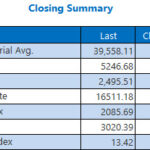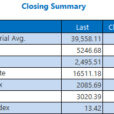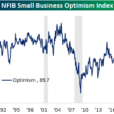
There is an old saying: “You can lay all the economists end to end and they will still not reach a conclusion.” While there may be some truth to this, there is widespread agreement among most economists (with Peter Navarro perhaps being an exception) that unrestricted trade is beneficial and protectionism is bad for any country. Trade wars can never be won and they are detrimental to an economy, as the US experience with the Smoot-Hawley tariffs during the Great Depression clearly demonstrated.
To point out the folly of a trade war is not to say that some countries aren’t pursuing unfair practices. We know that they are and action is appropriate. China may be dumping steel on the market at below cost, but that can’t go on forever, and China is not the major supplier of steel to the US. In 2017 China accounted for only 2% of US steel imports. Furthermore, no entity can overcome a negative spread on a product by increasing sales volume. But the proper response to abuses and attempts to corner a market is coordinated pressure and political pressure by allies together with us of the WTO dispute process, not tariffs. Pursuing remedies is a long and torturous endeavor, but so is dealing with retaliatory responses when a country like the US suddenly makes a unilateral move to impose tariffs or engage in other protectionist acts, especially those that harm our allies.
Such actions don’t often – if ever – lead to wins, let alone easy wins, as the President will soon find out. In the past the US has occasionally engaged in protectionism by imposing unilateral tariffs. Interestingly, one of the most recent episodes was carried out in 2002 by the Bush administration. While Republicans are most often supporters of free trade, President Bush imposed a complex set of temporary three-year tariffs on steel imports, mainly from the EU. Given this comparatively recent episode and the fact that it involved steel, one of the two products targeted by the tariffs being rolled out by the Trump administration, the 2002 experience may provide some clues as to how President Trump’s tariffs will fare.
Before we turn to the history of the 2002 effort to impose steel tariffs, it is important to put forth some basic statistics on US steel and aluminum imports. The US is the world’s largest importer of steel, yet it actually accounts for only 8% of total world steel imports, and it imports steel from over 110 countries.[1] The top ten sources of US imports account for 78% of the total, with the largest four being Canada (16%), Brazil (13%), South Korea (10%), and Mexico (9%). Note that 25% of our total imports come from our closet North American neighbors. More importantly, the steel imports by the US from Canada and Mexico account for 89% and 68% respectively of their total steel exports. Thus, tariffs imposed by the US on imports from these two countries that our closest neighbors would be devastating to their steel export business. That belated realization is clearly behind the fact that President Trump backtracked on his initial tariff announcement and exempted these two countries from his tariffs. He has also hinted that some others, like Australia (less than 1% of US imports), may also be exempted, as they were from the Bush tariffs in 2002.
















